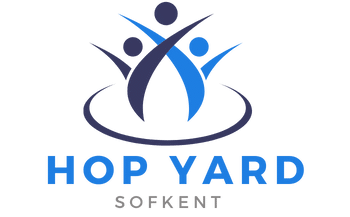How Can Early Screening and Intervention Improve Outcomes for Children with Developmental Delays?

In today's fast-paced world, the early identification and support of children with developmental delays have never been more critical. As health care providers, educators, and families band together, the emphasis on early screening and intervention services can significantly improve the outcomes for these young children. Understanding the process and benefits of early intervention can help families with children facing developmental delays navigate the services available to them and support their child’s growth and development effectively.
The Importance of Early Developmental Screening
Developmental screening is a crucial first step in identifying children who may have developmental delays. It allows for the early identification of issues that might not be immediately apparent.
Avez-vous vu cela : How Can Digital Health Tools Improve Medication Adherence in Chronic Disease Patients?
Screening involves a variety of assessments and observations by health care professionals, educators, and sometimes parents. These screenings are designed to identify developmental delays in areas such as motor skills, language, social skills, and cognitive abilities. Early developmental screening helps in identifying children who may benefit from further evaluation and services.
By catching developmental delays early, care providers can initiate treatment plans that are tailored to the unique needs of each child. This proactive approach can prevent potential issues from becoming more severe, making it easier for children to reach their full potential. Additionally, early developmental screening plays a vital role in reassuring families, providing them with the support and resources they need to help their child thrive.
A lire également : How Can Personalized Medicine Improve Treatment Outcomes for Cancer Patients?
Early Intervention Services
Once a developmental delay is identified, early intervention services become the next critical step. These services are designed to provide support and resources to children with developmental delays and their families.
Early intervention services include a range of therapies and programs aimed at addressing the specific needs of each child. These services can range from speech and language therapy to occupational and physical therapy. The goal is to work on the child’s development in a comprehensive manner, fostering growth in all areas. Professionals working in early intervention services often collaborate closely with families to ensure that the support provided aligns with the child’s everyday environment and activities.
Families with young children experiencing developmental delays should look for trusted sources to find the best early intervention programs available. Health care providers and child care specialists can guide families to appropriate services. Additionally, online resources such as Google Scholar can offer a wealth of research and information on the effectiveness of various early intervention strategies.
Benefits of Early Identification and Support
Early identification and support for children with developmental delays can lead to significant benefits both short-term and long-term. These benefits extend not only to the children themselves but also to their families and the wider community.
Timely intervention helps in addressing developmental issues before they become more entrenched, thereby reducing the need for more intensive and costly services later on. For children with developmental disabilities, early support can lead to improved language skills, better social interactions, and enhanced cognitive development. This can set the stage for more successful integration into school settings and other social environments.
Families of children with developmental delays also benefit from early identification and support. They gain access to resources and support systems that can help them navigate the challenges of raising a child with disabilities. This support network can provide emotional relief, practical advice, and educational resources that empower families to be active participants in their child's development.
The Role of Care Providers and the Community
Health care providers, educators, and the community play a pivotal role in supporting children with developmental delays. From the initial stages of developmental screening to the ongoing provision of intervention services, a collaborative approach is essential.
Care providers, including pediatricians, therapists, and child care specialists, are often the first point of contact for families concerned about their child's development. These professionals are instrumental in conducting developmental screenings and guiding families towards appropriate intervention services. They also play a crucial role in monitoring the child’s progress and making necessary adjustments to the intervention plan.
The community, including schools, child care centers, and support groups, also has a significant role to play. By fostering an inclusive environment, the community can support children with developmental delays in achieving their goals. Schools can implement personalized education plans (IEPs) and provide specialized resources to support children with disabilities. Community support groups can offer parents a space to share experiences and gain insights from others who are in similar situations.
In conclusion, early developmental screening and intervention services have a profound impact on children with developmental delays. By identifying issues early and providing tailored support, we can significantly improve the outcomes for these children. Families, care providers, and the community must work together to ensure that children with developmental delays receive the support they need to thrive.
The benefits of early intervention are clear: improved developmental outcomes for children, better support for families, and a more inclusive community. As we continue to prioritize early screening and intervention, we pave the way for a brighter future for all children, regardless of their developmental challenges.
By embracing early identification and intervention, we can make a positive difference in the lives of children with developmental delays, helping them to reach their full potential and lead fulfilling lives.
